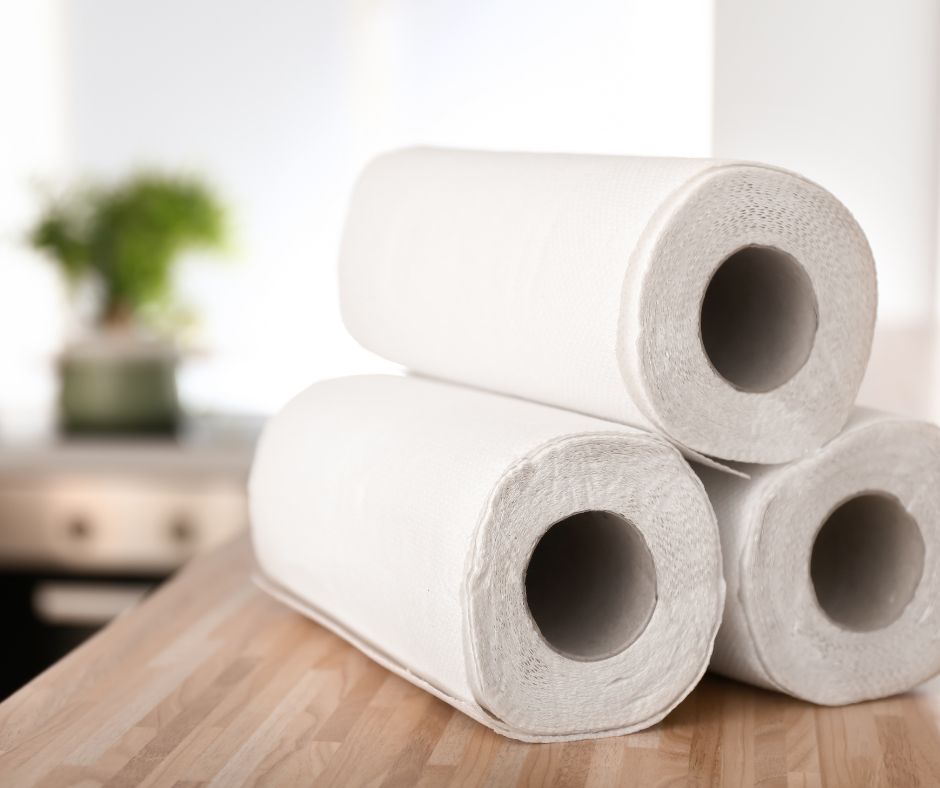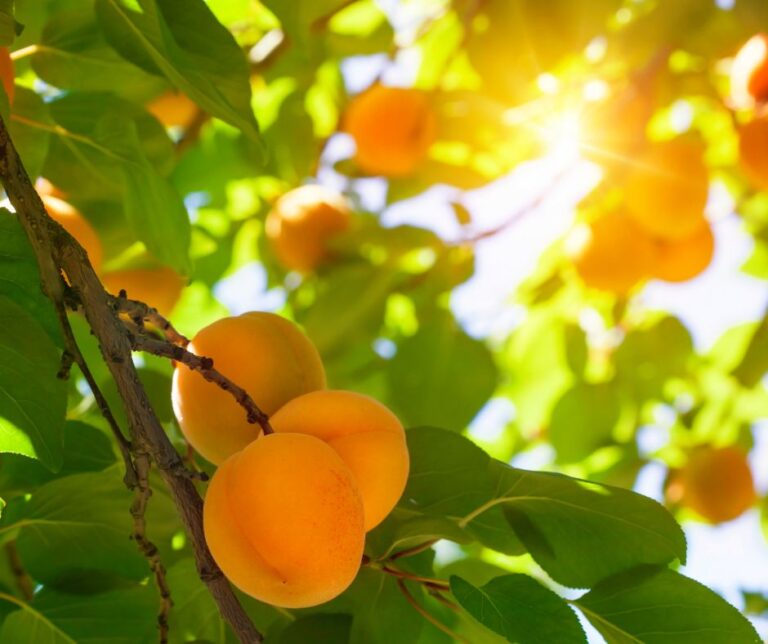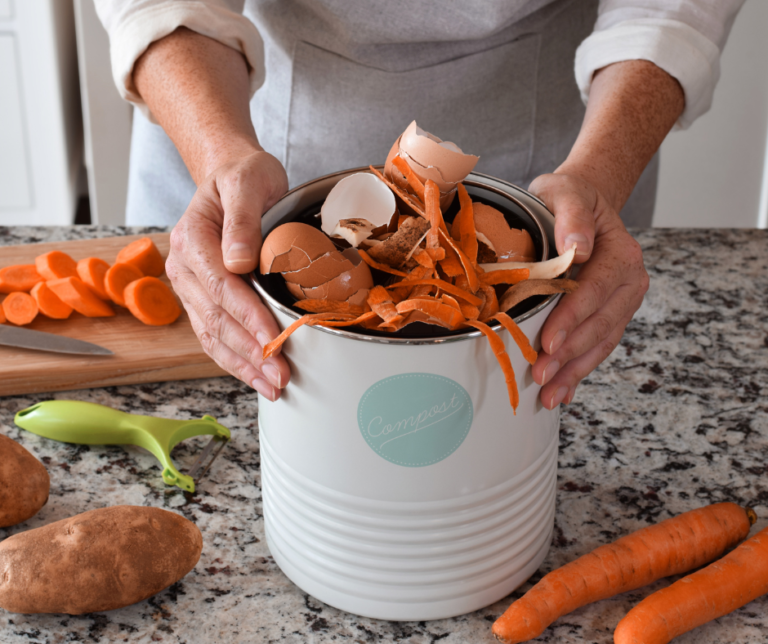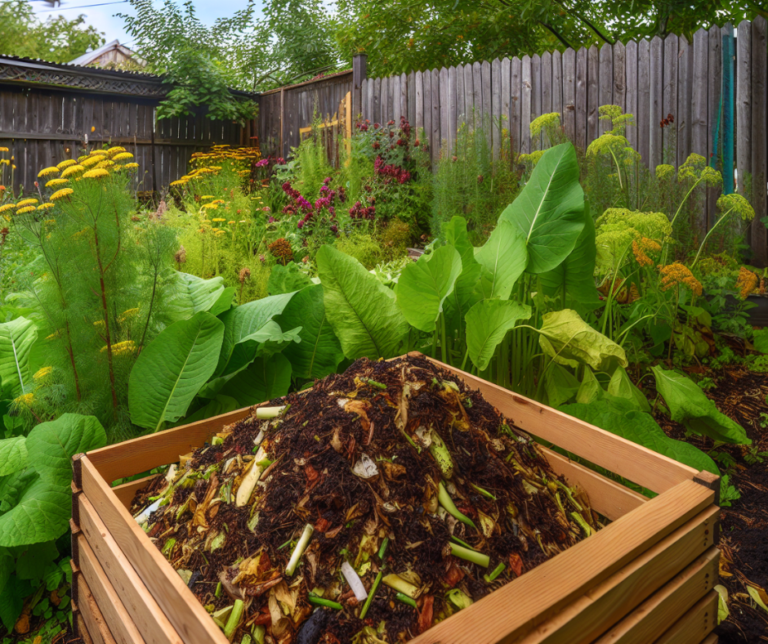Are Paper Towels Compostable? Unveiling the Alchemy Magic
So you’ve been diligently composting your kitchen scraps and yard waste, but now you find yourself with a pile of paper towels that have seen better days. You start to wonder, can paper towels be composted too? It’s a common question for those striving to live a more sustainable lifestyle. In this article, we’ll explore whether paper towels can be composted and discuss the best practices for incorporating them into your compost pile. Whether you’re a seasoned composter or just getting started, you won’t want to miss this important information.

Understanding Compostable Materials
Defining compostable materials
Compostable materials are those that can be broken down and decomposed into organic matter by micro-organisms under the right conditions. Unlike materials that are simply biodegradable, compostable materials break down into nutrient-rich compost, adding value to the soil. Compostable materials are an essential component of maintaining a healthy compost pile.
Different categories of compostable materials
Compostable materials can be broadly categorized into two types: green waste and brown waste. Green waste consists of nitrogen-rich materials like kitchen scraps, grass clippings, and coffee grounds. These materials provide the necessary nutrients for the microorganisms involved in the composting process. Brown waste, on the other hand, is carbon-rich and includes items such as dry leaves, straw, and paper products like cardboard and newspaper. Brown waste provides structure and aids in moisture retention within the compost.
Ideal composting conditions for various materials
Different materials require specific conditions to break down effectively in the composting process. For example, green waste requires a higher nitrogen-to-carbon ratio to prevent the pile from becoming too acidic. It is recommended to maintain a ratio of about 30 parts brown waste to 1 part green waste. Additionally, proper aeration and moisture levels are essential to facilitate decomposition. Regular turning of the compost pile helps provide oxygen to the micro-organisms, while the moisture content should be similar to that of a wrung-out sponge.

Can You Compost Paper Towels?
Breaking down the confusion
One of the questions that often arises is whether paper towels can be composted. The answer is not as straightforward as a simple yes or no. While certain paper towels can be composted, not all paper towels are created equal, and some may not be suitable for composting due to the additives or treatments they undergo.
Facts about composting paper towels
Composting paper towels can be a great way to divert waste from landfills if they meet certain criteria. Unbleached paper towels free from chemicals like chlorine or dyes are typically safe to compost. Additionally, paper towels that have been used to clean up water-based spills or food scraps, without any harmful chemicals or oils, can be composted effectively.
Safety concerns about composting paper towels
It’s important to be cautious when composting paper towels, as some brands may use bleaching agents, synthetic fibers, or additives that are not compost-friendly. Paper towels that have been used to clean up hazardous materials, chemicals, or oils should not be composted, as they may contaminate the compost and render it unsafe for use in gardens or potted plants.

The Paper Towel Composition
What are paper towels made of?
Paper towels are primarily made of pulp derived from various sources, including trees, recycled paper, or a combination of both. The pulp is then processed to form a network of fibers that provide absorbency and strength. Other additives, such as binders or fillers, may also be included in the manufacturing process to enhance functionality.
The Paper Towel manufacturing process
The manufacturing process of paper towels involves several steps. After pulping the raw materials, the pulp is spread onto a wire mesh screen, which allows excess water to drain and facilitates the formation of a continuous sheet. The sheet is then pressed, dried, and creped to enhance softness and absorbency. Finally, the paper towel rolls are cut and perforated for consumer use.
Understanding the chemical constituents of paper towels
Paper towels, especially those made from recycled materials, may contain small amounts of chemicals like ink, adhesive residues, or traces of other contaminants. While these substances are typically present in minute quantities and considered safe, it’s important to compost paper towels responsibly and avoid adding ones that contain excessive chemicals or contaminants.

Impacts of Composting Paper Towels
Effect on compost’s nutrient composition
Composting paper towels offers several benefits to the nutrient composition of the final compost product. The cellulose fibers in paper towels contribute to the carbon content, while the micro-organisms involved in the composting process break down the paper towels, releasing nutrients into the compost. This results in a well-balanced compost that provides essential nutrients for plant growth.
The role of paper towels in composting microbiology
The micro-organisms present in compost play a crucial role in breaking down organic matter and facilitating nutrient release. Paper towels, being organic materials, provide a food source for these micro-organisms. By incorporating paper towels into the compost pile, you can support the growth and diversity of beneficial micro-organisms, enhancing the overall composting process.
Influence of paper towels on compost’s physical attributes
In addition to nutrient composition, paper towels can also contribute to the physical attributes of compost. The fibrous nature of paper towels helps create air gaps within the compost pile, improving airflow and preventing compaction. Proper aeration is crucial for the micro-organisms involved in composting to thrive and efficiently break down organic matter.

Conditions Needed for Paper Towel Composting
Required temperature and moisture level
Composting paper towels requires similar temperature and moisture conditions as other organic materials. The ideal temperature range for composting is between 110-160°F (43-71°C). This range ensures the efficient breakdown of organic matter and the destruction of potential pathogens. As for moisture level, the compost pile should be kept moist but not waterlogged, typically around 40-60% moisture content.
The time required for paper towels to compost largely depends on various factors like the thickness of the towels, the environmental conditions, and the presence of other compostable materials. On average, paper towels can take anywhere from a few weeks to several months to break down completely. Regular monitoring and turning of the compost pile can help expedite the composting process.
Composting time for paper towels
The time required for paper towels to compost largely depends on various factors like the thickness of the towels, the environmental conditions, and the presence of other compostable materials. On average, paper towels can take anywhere from a few weeks to several months to break down completely. Regular monitoring and turning of the compost pile can help expedite the composting process.
The role of other composting materials
While paper towels can contribute to the composting process, they alone may not provide sufficient carbon or nitrogen content for an optimal compost pile. It is important to balance the addition of paper towels with other compostable materials, such as vegetable scraps or dry leaves, to maintain the ideal carbon-to-nitrogen ratio. This balanced approach ensures proper decomposition and nutrient-rich compost.

Step by Step Guide to Compost Paper Towels
1. Selecting the right paper towels
When composting paper towels, it’s essential to choose the right type of paper towels. Opt for unbleached paper towels without any added chemicals, dyes, or synthetic fibers. These towels break down more effectively and are safer for composting. Avoid using paper towels that have been contaminated with oils, chemicals, or hazardous substances.
2. Preparing and adding paper towels to compost
Before adding paper towels to the compost pile, shred or tear them into smaller pieces. This helps accelerate the decomposition process by increasing the surface area exposed to microorganisms. Layer the shredded paper towels with other compostable materials, such as kitchen scraps or dry leaves, to ensure a balanced compost pile.
3. Ensuring optimal composting conditions
Maintaining optimal composting conditions is crucial when composting paper towels. Regularly monitor the moisture level and adjust as needed, ensuring the compost pile remains moist but not overly wet. Turn the compost pile every few weeks to provide oxygen to the micro-organisms and aid in decomposition. Continue to add other compostable materials to maintain a balanced mix throughout the composting process.
Conclusion
In conclusion, composting is an effective way to reduce waste and promote sustainable practices. While paper towels can be composted, it is important to choose the right type of paper towels and ensure they are free from harmful chemicals or contaminants.
Composting paper towels can enrich the nutrient composition of the compost, enhance microbiological activity, and improve the physical attributes of the final product. By following proper composting practices and exploring eco-friendly alternatives, such as biodegradable paper towels or reusable cloth towels, we can all play a part in creating a more sustainable future. So, next time you reach for a paper towel, consider its composting potential and join the journey towards a greener and healthier environment.







